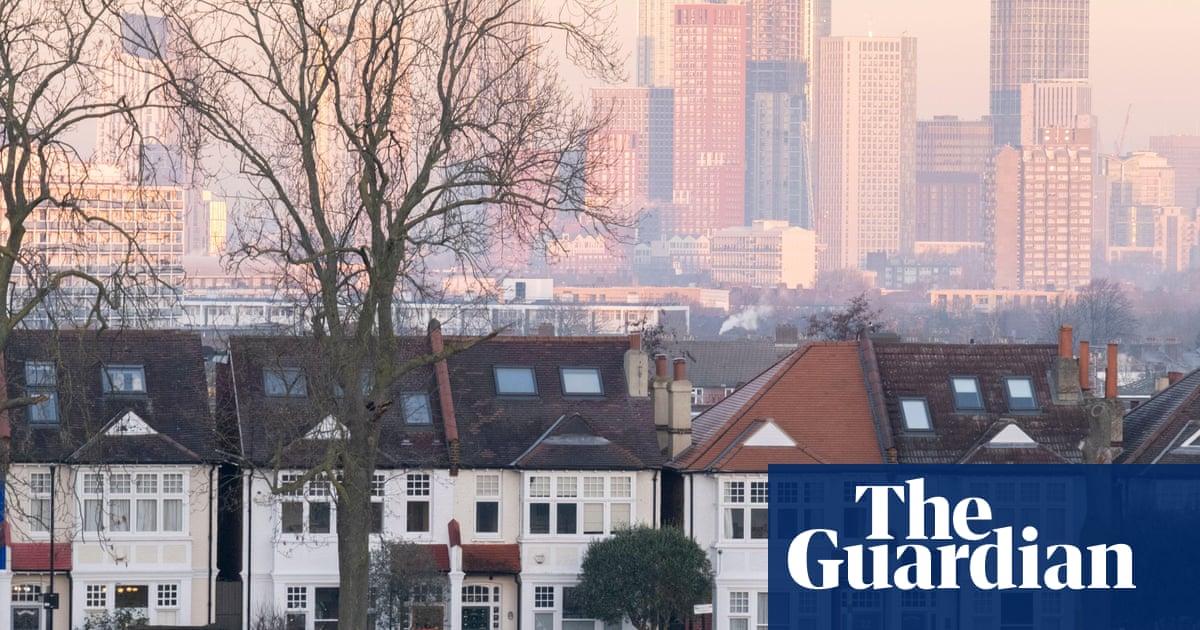The number of patients being treated byGPsfor asthma attacks has increased by 45% in a year, prompting calls for urgent action to tackle toxic levels of air pollution.
There were 45,458 presentations to family doctors inEnglandbetween January and June this year, according to data from the Royal College of General Practitioners research and surveillance centre. Across the same period in 2024, there were 31,376 cases.
The figures come a week aftera damning report by the Royal College of Physiciansrevealed that 99% of the UK population was now breathing in “toxic air”. Air pollution was killing 500 people a week and costing £27bn a year in ill health, NHS care and productivity losses, the research showed.
New data from the RCGP research and surveillance centre shows the rate of asthma attacks in 2025 has consistently been above the five-year average.
Exacerbations of asthma – attacks which cause breathlessness and chest tightness – were, alongside other environmental and lifestyle factors, closely linked to air pollution as patients’ airways could be irritated by exposure to harmful matter, the RCGP said.
The college is calling on ministers and the mayors of major cities to expand existing clean air zones to combat the health consequences of air pollution.
In an interview with the Guardian, Prof Kamila Hawthorne, the chair of the RCGP, said: “GPs have long been sounding the alarm on the detrimental effects of air pollution on patients’ health and these latest figures on asthma exacerbations are extremely concerning.
“Air pollution is a major public health crisis which is often overlooked, but we know it can be responsible for a range of serious physical and mental conditions and will often exacerbate existing conditions in patients.
“We have been very encouraged by the efforts of the mayors in major cities such as Birmingham and London to reduce air pollution exposure through schemes such as the Ulez initiative, which are reporting very positive results.
“But these latest statistics show that we need to go further, expanding the focus on reducing air pollution in the worst affected communities.”
The Department ofHealthand Social Care has said its 10-year health plan, due to be published next Thursday, will shift the NHS from treatment to prevention.
Tackling air pollution must be a key part of the plan, Hawthorne said. “If we don’t take measures to address this, it is patients who will suffer the consequences – particularly those in more economically deprived areas with already limited access to healthcare services.
“As well as the devastating human cost, this will ultimately also result in a greater burden on an already overstretched NHS.”
Sarah Sleet, the chief executive ofAsthma+ Lung UK, said the “huge increase” in asthma attacks was “extremely worrying”.
“While there may be multiple factors at play, we know that air pollution can be deadly for the millions of people in the UK living with lung conditions like asthma and chronic obstructive pulmonary disease,” she said.
“It can trigger life-threatening attacks and exacerbate symptoms, leaving people fighting for breath. It stunts the growth of children’s lungs, and being exposed to high levels of air pollution over a long period of time can also cause lung conditions.
“Yet still the government has shown no political will to tackle toxic levels of air pollution, which across the UK are much higher than the recommended safe levels set by the World Health Organization.”
Prof Steve Turner, the president of the Royal College of Paediatrics and Child Health, said he was “alarmed” by the rise in asthma attacks and urged ministers to “act quickly”.
About one in 10 children in the UK have asthma.Previous studies show steep risesin visits to doctors by children with asthma after a week of raised air pollution levels.
“These attacks are distressing, serious and life threatening, but they are also preventable,” Turner said. “Exposure to high concentrations of air pollution increases the risk of both developing asthma and triggering attacks.”
Dr Harry Apperley, a clinical fellow at the RCPCH, said the impact of toxic air on children’s health was “particularly profound” because their lungs were smaller and they breathed faster than adults, so inhaled a larger volume of air in a shorter period.
“In hospital, I’m increasingly seeing children and families living in or near environments that harm their health … Politicians and policymakers need to act. It shouldn’t take a clinician’s letter, or even a child’s death, to make change happen,” he said.
A government spokesperson said: “Air pollution is a serious public health issue, and we are committed to tackling this issue across the country.
“We have already provided £575m to support local authorities to improve air quality and are developing a series of interventions to reduce emissions so that everyone’s exposure to air pollution is reduced.”
